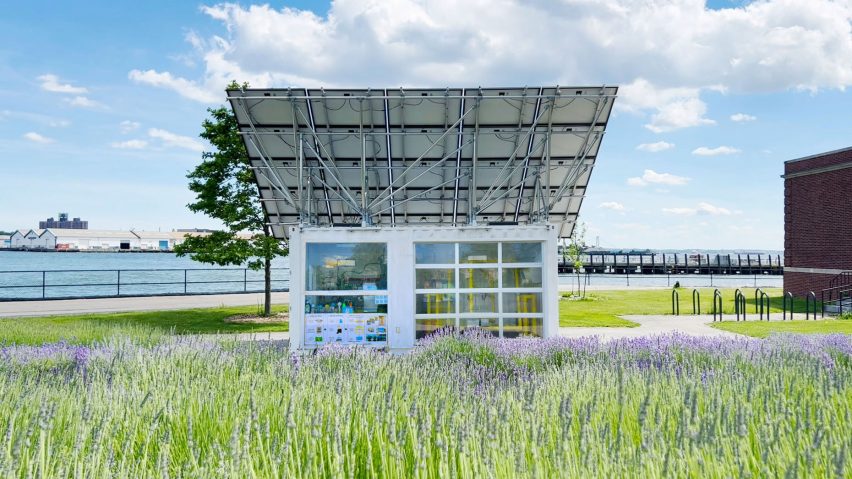
Circular Economy Manufacturing creates solar-powered recyling "microfactory" in New York
Design group Circular Economy Manufacturing has created a small factory that uses solar energy to convert plastic waste into household items and city infrastructure on Governors Island.
Named MicroFactory, the portable facility was designed to turn household consumer plastic waste into usable objects within communities.
Created by New York sustainability start-up Circular Economy Manufacturing (CEMfg), the factory was constructed within a 20 by 7.5 foot (six by two metres) shipping container and installed on Governors Island – a small car-less island off the shore of Manhattan.
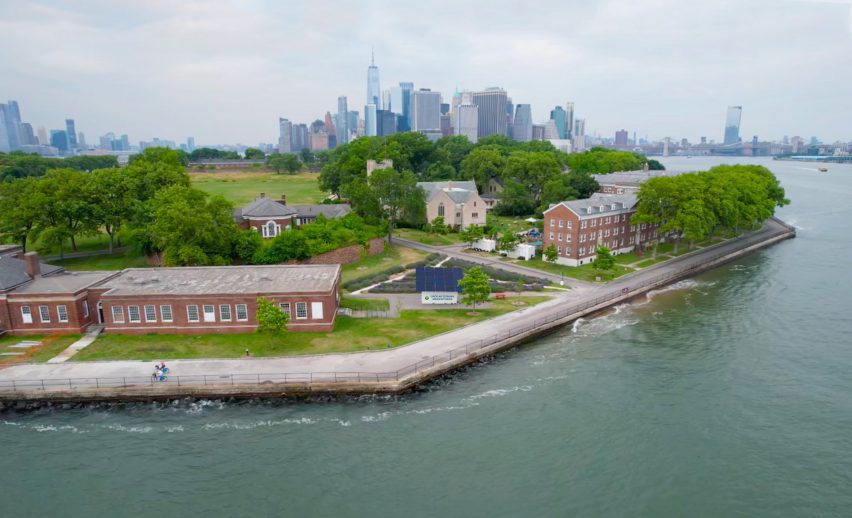
Its shipping container envelope was designed to make it easy to install on the island and easy to be transported in the future. It was painted white to absorb less heat and keep the equipment cool.
A clear garage door and windows were installed on the facade to allow passersby to see the equipment inside at work.
An array of 25 photovoltaic panels – a ten kilowatt array in total – was placed on top of the container and run through a solar inverter connected to batteries, which store the power and allow the factory to be 100 per cent solar-powered.
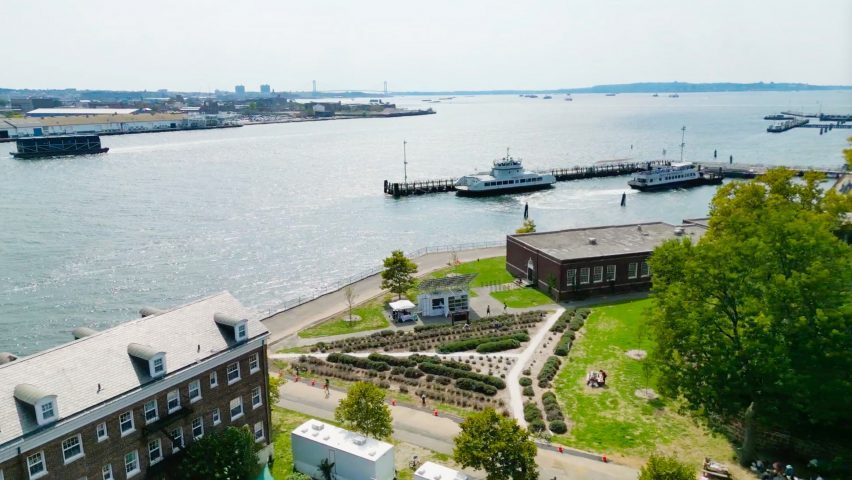
To use the factory, people must bring used, cleaned plastics and place them in an on-site shredder. The shredded plastic is then placed in a machine that feeds it into a Rotational Molding Machine.
The machine uses heat and movement to melt and then cool the plastic into preset moulds. Multiple different moulds can be clamped on at each cycle, and the team said it could produce six large street traffic cones in one cycle.
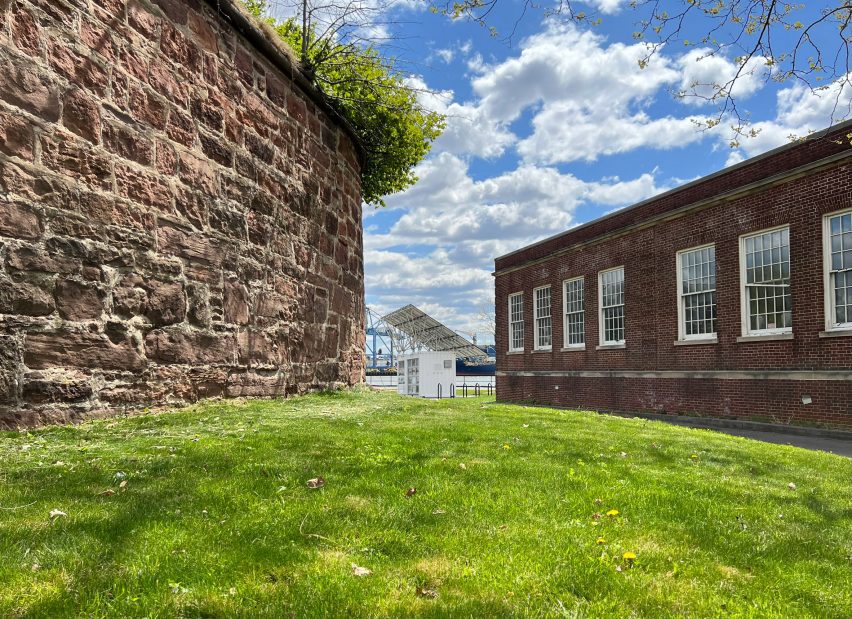
"We plan on growing our start-up by selling the small products to citizens, the urban infrastructure products to cities, and our whole MicroFactory to communities or countries," said CEMfg co-founder Barent Roth.
"Every recycling center around the world could have a MicroFactory on-site immediately converting single-use plastic into durable essential products."
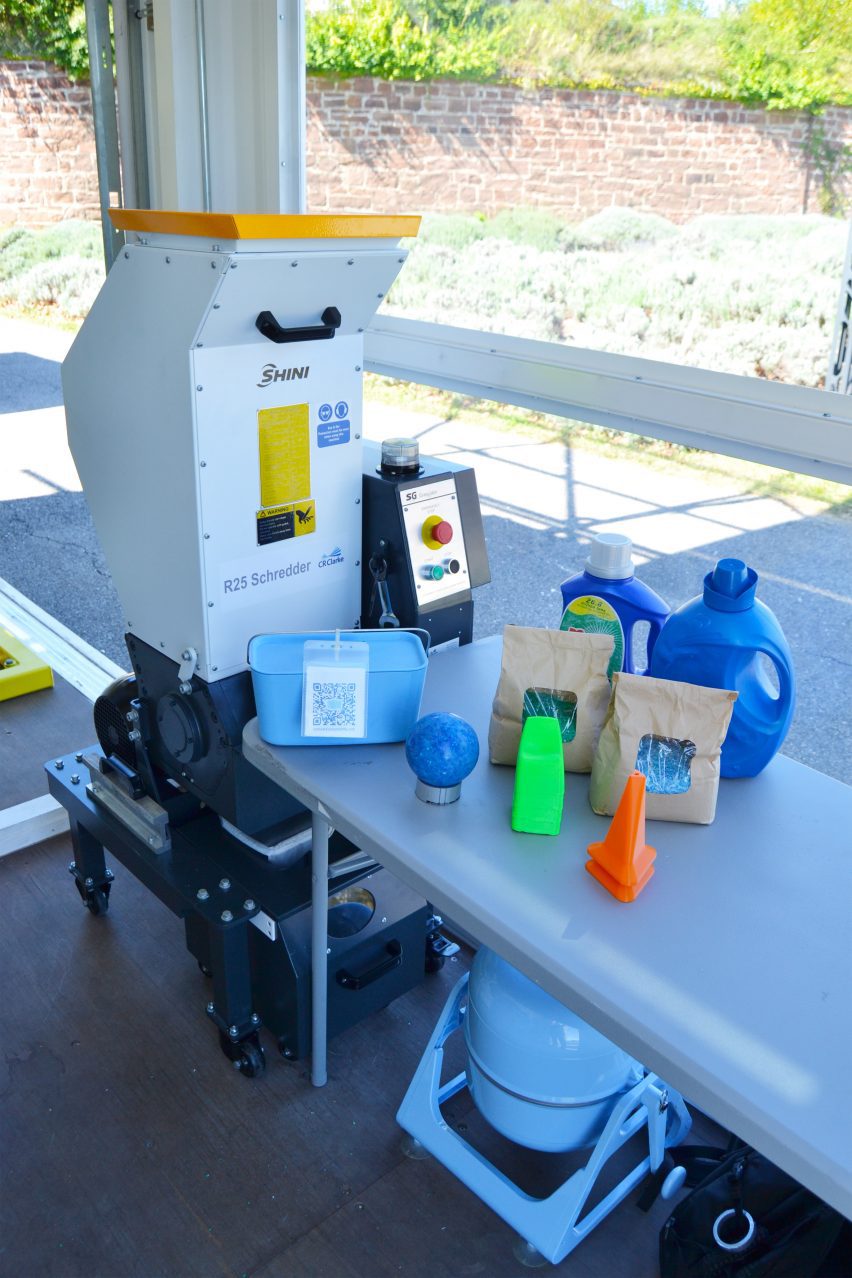
So far, the factory on Governors Island has produced lamps and planters that have been sold back to the public to fund future endeavours.
Because the company is still small, the sorting is done by hand, and Roth said the team does not melt plastic that it cannot identify.
"High Density Polyethylene (HDPE) #2 is our preferred plastic," said Roth. "It has a relatively low melting temperature and is readily available in a wide range of colors."
The project was made possible through an initiative started by entrepreneur Chris Graff who began a competition asking designers to come up with ideas to help deal with the waste problems in New York City called the NYC Curb-to-Market Challenge.
"Eventually, we hope to deploy a fleet of MicroFactories to locations around the country, to create green jobs, reduce greenhouse gas emissions, divert tons of plastic waste from landfills, and educate community members about the potentials of Circular Manufacturing," said the team.
"We can bring our MicroFactories anywhere there is ample plastic pollution and consistent sunlight."
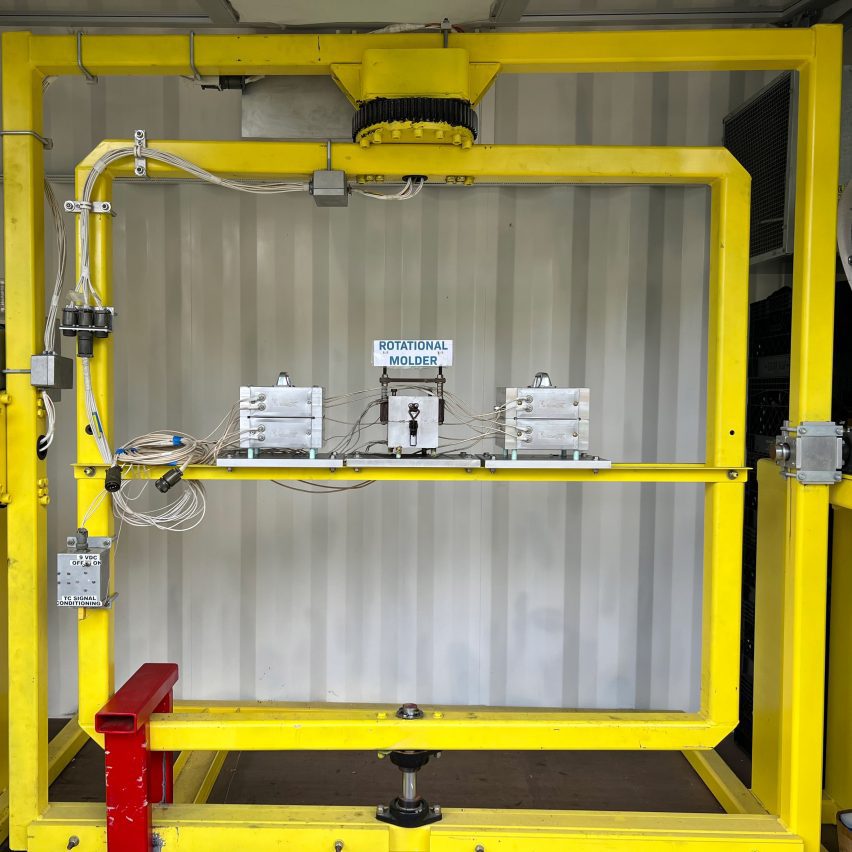
The team at CEMfg has made a 3D model of the MicroFactory available online, here.
Nearby, in Queens, a group of academics and designers launched a program that converts architectural mock-ups into community garden sheds.
Other urban recycling projects include designer Jeffrey Miller's conversion of London's waste into tiles for the city's underground trains.